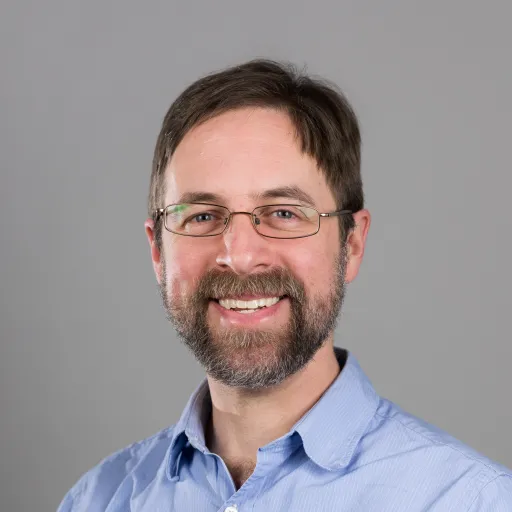Courses
- Math 100 - Mathematics Fundamentals
-
Mathematics fundamentals is about reasoning quantitatively. This means that you will learn to think about the way we numerically measure aspects of everyday situations. Students will learn and use mathematical skills connected to situations that are connected to the world outside of the classroom, and will talk, read, and write about quantitative information.
-
- Math 111 - Calculus
- The goal of calculus is to study the rate at which quantities change (derivatives) and the rates at which they accumulate (integrals) and the amazing connections between these concepts. We use in-class projects and group labs to explore and discuss these ideas.
- Math 144 - Statistics for Business, Economics, and Management
- Math 145 - Statistics for Health, Life, and Social Sciences
- Math 155 - Basic Statistical Reasoning
- The goal of these courses is to help students develop an understanding of the statistical investigative cycle as it arises in business- or health-science-related contexts. Students conduct semester-long projects that involve formulating research questions, collecting data, analyzing data using formal statistical concepts, and drawing conclusions about the populations of interest.
- Math 153 - Math as a Cultural Institution
-
The goal of this course is to reflect on and find your own answer to the questions “What is Mathematics?” and “How does it function as a cultural system?” We investigate the nature of mathematics by experiencing, reading about, and discussing several aspects of mathematical thinking and learning. We use ideas from philosophy, psychology, history, sociology, and biology to explore and gain insight into math as it has developed historically, as it is taught in schools, and as it is used in society.
-
- Math 166 - The Mathematical Miseducation of America's Youth: The History of Teaching Math
-
For most of us, mathematics has primarily involved memorizing and practicing step-by-step procedures and, we were told that math would be useful in our jobs and everyday lives. However, the math we were taught—and the justifications for teaching it—has changed dramatically over the past 150 years in response to various economic, political, philosophical, social, and educational issues. We will examine this historical evolution of math in schools to help us understand what math is, its role in society, and our own educational experiences.
-
- Math 216 - Mathematical Statistics
- This class explores the mathematical underpinnings of the central ideas of statistics, focusing on the ways we can draw inferences about populations based on samples. This course is designed to help students decide how to collect and organize data, how to draw inferences and make decisions based on your data, and to explore the mathematical underpinnings of the statistical theory.
- Math 220 - Mathematics for Childhood Education
- This is a math content course for students who are preparing to teach elementary and middle school. We discuss topics in arithmetic, including place value and numeration systems, fractions and percents, and algorithms for whole-number and fraction arithmetic. The goal of this course is to help students understand both how and why these algorithms work by focusing on the work of and algorithms created by children.
- Math 231 - Linear Algebra
- Linear algebra is the study of systems of linear equations. It involves thinking about these in terms of vectors and matrices. It focuses on looking for patterns in relationships between vectors and matrices, generalizing these patterns, and explaining why the patterns are true. Finally, it involves modeling real-life situations (i.e., creating systems of equations that correspond to aspects of the situations) and using mathematical tools to solve complex problems.
- Math 480 - Connections in Advanced Mathematics
- Mathematical ideas were developed by people from across the globe and from across time. Even seemingly simple ideas, such as the concept of a number, have influenced—and been influenced by—aspects of culture, technology, philosophy, and religion. These same ideas led people to ask important mathematical questions and, in the process of answering them, make connections between various branches of mathematics. In this class, we will examine basic mathematical ideas from a historical perspective and then explore some of the fascinating connections that arose from these ideas.
- Math 510 - Graduate Seminar in Mathematics
- In this seminar, we discuss various theoretical perspectives from mathematics education literature, using each as a lens through which to view and analyze classroom practice. Topics include curricular reform, sociomathematical norms, discourse patterns, revoicing, theories of learning, intellectual necessity, representation, proof, and problem solving.
- Education 40510 - Pedagogy and Practice for the Mathematics Teacher
-
This course examines the teaching of mathematics in the middle and secondary levels, including current knowledge and research on the learning of mathematics for all students, national and state standards, the New York State mathematics curriculum, professional journals and organizations, supplemental instructional techniques, appropriate use of technology and assessments, and actual practice in teaching. Using methods and materials from Pedagogy and Practice Across the disciplines, along with subject-specific strategies and instructional materials, we will blend theory with practice as you prepare for your professional semester of teaching.
-
